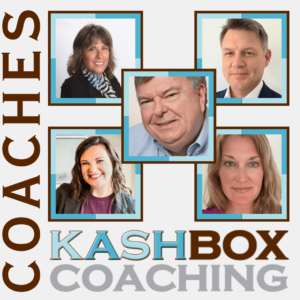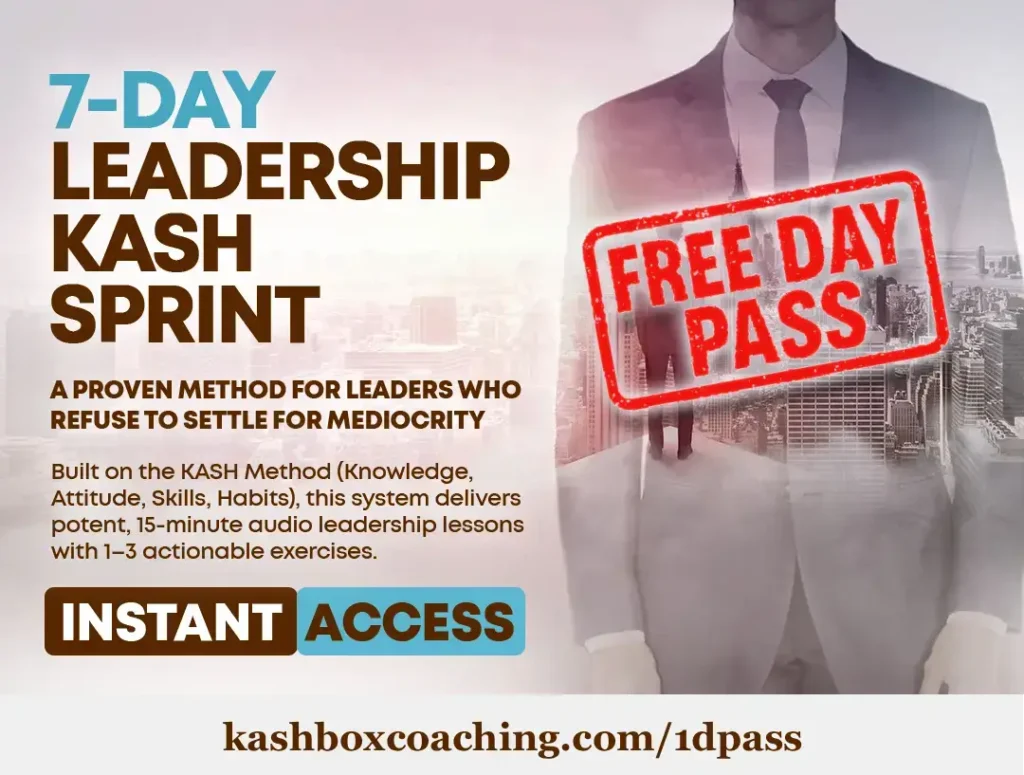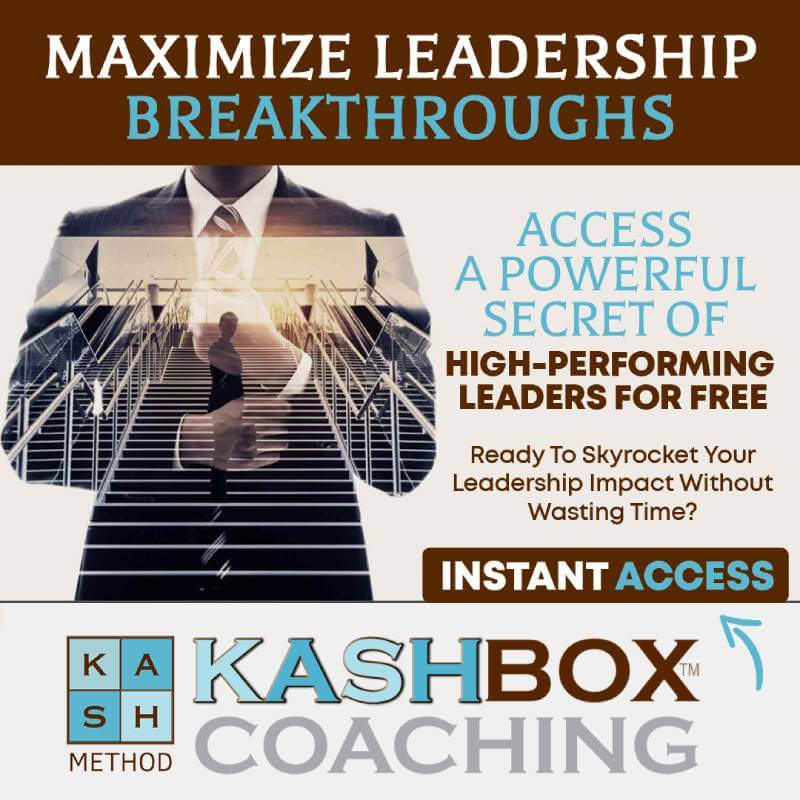Running a family business is one of the most rewarding — and challenging — endeavors in the world of entrepreneurship. The legacy, the shared history, and the personal investment of family members can fuel remarkable success. But that same closeness can also lead to emotional decision-making, blurred boundaries, and stalled growth.
So what separates thriving family businesses from those that struggle, stagnate, or fall apart at the hands of internal conflict?
The answer often lies in something surprisingly simple: the KASH Method — Knowledge, Attitude, Skills, and Habits.
This framework, when intentionally applied to the family business setting, provides a roadmap for sustainable growth, strong relationships, and generational continuity.
K – Knowledge: Build and Share a Foundation
In family businesses, assumptions can be dangerous. People often rely on tradition or experience passed down verbally, but without a shared base of knowledge — about the business, the industry, and each other’s roles — confusion and inconsistency creep in.
What knowledge is critical?
- Understanding of the business model, key financials, and strategic goals.
- Clarity around each family member’s role, responsibilities, and boundaries.
- Awareness of legal structures, succession plans, and governance policies.
Too often, the knowledge lives in the founder’s head. That’s a problem.
Solution: Make knowledge transparent and transferable. Document workflows. Create onboarding for new family members. Have open discussions about long-term plans, not just day-to-day operations. When everyone understands the “why” and the “how,” collaboration improves.

5 Powerful Secrets of High-Performing Leaders
✓ 4 Strategic Wins for instant clarity and execution
✓ Beat Parkinson’s Law to dominate your schedule
✓ Optimize Your Energy for unstoppable productivity
✓ Read to Lead to accelerate personal and career growth
✓ Proven Learning Method that cements breakthroughs
A – Attitude: Lead with Intent, Not Entitlement
In a family business, mindset matters more than title. Success depends not just on what people know, but how they approach their role.
Do they show up like owners or like relatives who feel owed a job? Do they view change as a threat or an opportunity? Are they committed to learning, or coasting on last name privilege?
Key attitude to cultivate:
- Ownership mentality: Taking responsibility for outcomes, not just tasks.
- Openness to feedback: Being coachable and receptive, regardless of seniority.
- Stewardship: Thinking long-term, and making decisions that benefit future generations.
When everyone in the family approaches the business with professionalism, humility, and purpose, the business becomes a shared mission — not a source of conflict.
S – Skills: Promote Competence Over Convenience
A common pitfall in family businesses is assigning roles based on relationship, not capability. This leads to misalignment, frustration, and in some cases, financial damage.
Being family doesn’t guarantee you’re the best person for a role — and that’s okay.
Instead, ask: What skills are needed for the business to thrive?
- Technical skills (finance, marketing, operations)
- Leadership and management
- Communication and conflict resolution
- Strategic planning
Solution: Create clear job descriptions. Provide training and professional development. If a family member isn’t ready for a role, help them grow into it — or hire outside talent when needed.
When skills are prioritized over status, performance improves and respect grows across generations.

Ready to Find Your Perfect Kashbox Coach?
Every executive and business leader has unique strengths and faces specific challenges. That’s why we offer a diverse team of experienced coaches, each with specialized expertise in different areas of leadership coaching.
Click the button below to match with a Kashbox Coaching leadership coach who can best help you unlock your full potential.
H – Habits: Establish Daily Discipline and Consistency
Success in a family business doesn’t come from one-time inspiration — it comes from daily execution. That’s where habits come in.
Habits are what keep the business running when emotions run high. They create structure in a potentially chaotic environment. They protect the company from becoming too personal or reactive.
Examples of powerful habits:
- Regular leadership meetings with clear agendas
- Annual reviews of performance and compensation — even for family
- Scheduled planning retreats or succession discussions
- Habitual documentation of decisions and processes
Culture is built through habits, not speeches. If you want a business that lasts, you need shared routines and rhythms that everyone respects.
Why KASH Works in Family Businesses
The beauty of the KASH method is that it balances both the emotional and operational sides of a family business.
- Knowledge aligns the team.
- Attitude shape the culture.
- Skills drive results.
- Habits sustain success.
Together, they form a framework that promotes not just profit, but professionalism, trust, and continuity — the pillars of any enduring family enterprise.
Closing Thought: Legacy Takes Intentional Work
Every family business starts with a dream. But that dream becomes a legacy only when future generations are equipped, committed, and aligned.
Using the KASH method gives families a practical, powerful tool to create clarity, reduce conflict, and build something that lasts far beyond any one person.
Because in the end, it’s not just about passing down a business — it’s about passing down the mindset and systems to keep it thriving.
Kashbox Coaching helps leaders at every level think clearly, decide confidently, and lead without burnout. We partner with individuals and teams who want to strengthen how they lead, communicate, and perform in complex, real-world environments.
Through one-to-one leadership and executive coaching, we support emerging leaders, seasoned managers, and senior executives alike. Some come to us at a pivotal career moment. Others want to sharpen focus, navigate change, or lead with greater consistency and confidence. Wherever they are, our coaching meets leaders where they are and helps them move forward with intention.
The Kashbox Coaching Institute complements our coaching work by offering programs, workshops, and learning experiences grounded in the KASH Method™ (Knowledge, Attitude, Skills, and Habits). These programs provide practical tools and shared language that reinforce the growth leaders achieve through coaching, without replacing the personalized nature of the work.
Whether through individual coaching, team engagements, or institute programs, Kashbox Coaching is focused on one outcome: helping leaders build clarity, credibility, and sustainable leadership that lasts.





